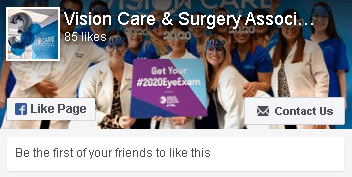It’s crucial that you routinely get comprehensive eye exams throughout your life. With a comprehensive eye exam, any problems with your eyes or with your vision can be detected and diagnosed as early as possible, making a positive outcome more likely.
Your eyes are an organ in your body just like other organs. You take care of the rest of your body, and your eyes should be no exception. The primary way to care for your eyes and their function is to get a comprehensive eye exam at least once a year or more if your eye doctor recommends it.
How a Comprehensive Eye Exam Differs From a Vision Screening
Many patients confuse a comprehensive eye exam with a vision screening. Vision screenings are very helpful in determining if there is a vision problem that needs to be corrected. However, vision screenings are different than comprehensive eye exams.
In a comprehensive eye exam, the patient will be asked about their medical background. It’s important to let the eye doctor know if you have a family history of problems such as diabetes, cataracts or other conditions that can affect the eyes. In addition, any allergies that you may have should be divulged to the eye doctor as well. Letting your eye doctor know about any relevant health history like this will alert the doctor to look out for certain signs in particular.
Another stage of the comprehensive eye exam is a test of your visual acuity. Your doctor may use a variety of tools to test your focus, perception of color, peripheral vision and more. A measurement of your visual acuity will be given, such as a vision rating of 20/20 or something else.
There are other several other stages of a comprehensive eye exam that will help your eye doctor assess the health of your eyes. Be sure to schedule your annual comprehensive eye exam right away to be sure you are taking proper care of your eyes.


